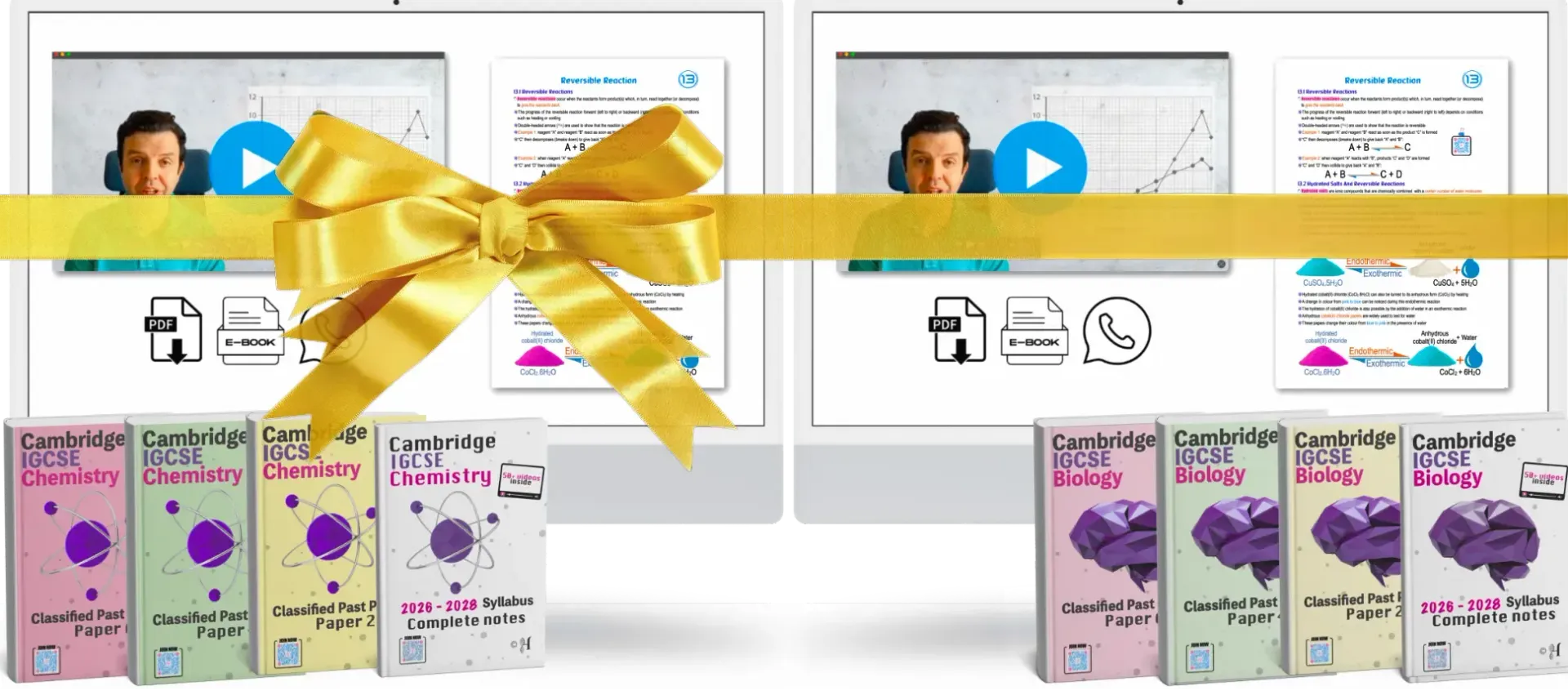IGCSE Chemistry
2026 - 2028
Syllabus Checklist ✅
Topic 10: Chemical Energetics – Exothermic & Endothermic Reactions
Key Ideas
State that an exothermic reaction
transfers thermal energy
to the surroundings, increasing the temperature
of the surroundings
State that an endothermic reaction
takes in thermal energy
from the surroundings, decreasing the temperature
of the surroundings
State that the transfer of thermal energy during a reaction is the enthalpy change
, ΔH
. ΔH
is negative
for exothermic
reactions and positive
for endothermic
reactions
Reaction Pathway Diagrams
Interpret reaction pathway diagrams
showing exothermic
and endothermic
reactions
Define activation energy
, E a
, as the minimum energy
that colliding particles must have to react
Draw and label reaction pathway diagrams (given information) to include: (a) reactants
(b) products
(c) enthalpy change
, ΔH
(d) activation energy
, E a
Bonds and Energy
State that bond breaking
is endothermic
and bond making
is exothermic
, and explain the overall ΔH
of a reaction in terms of bond breaking and bond making
Calculate the enthalpy change
of a reaction using bond energies


